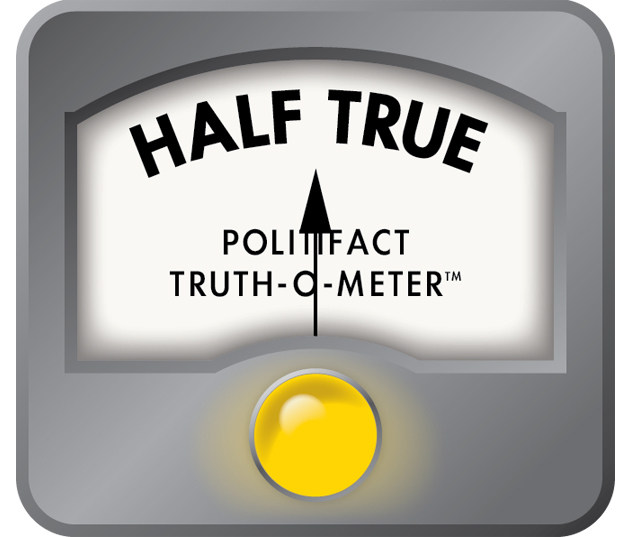Stand up for the facts!
Our only agenda is to publish the truth so you can be an informed participant in democracy.
We need your help.
I would like to contribute
Are sanctions against Cuba tougher than they are on North Korea?
North Korea’s recent test-launch of an intercontinental ballistic missile capable of reaching Alaska has left policymakers wondering about the next step for countering Kim Jong Un’s nuclear ambitions.
During a panel discussion on MSNBC on July 6, 2017, Hagar Chemali, a former U.S. Treasury Department official who now runs a consulting firm called Greenwich Media Strategies, argued that there’s still room to tighten sanctions against North Korea.
When MSNBC’s Chris Jansing countered that many experts disagree with that argument, Chemali responded, "They say that because I don't think they realize how much room there is left to isolate North Korea. Cuba is far more sanctioned than North Korea."
Does Cuba really face heavier sanctions than North Korea, a nuclear-armed rogue state?
A variety of experts said Chemali has a point about U.S. sanctions against Cuba, but her comparison misses the bigger picture of international actions against North Korea.
U.S. sanctions against Cuba are heavy (but not shared by the world)
Chemali has a plausible argument that U.S. sanctions against Cuba are tougher than those against North Korea, experts said.
"Cuba is subject to draconian U.S. sanctions -- a full trade embargo, restrictions on the rights of American citizens to travel or spend money in the country and draconian licensing requirements on financial dealings," said Joseph DeThomas, who worked on North Korea issues at the State Department from 2010 to 2013 and is now a professor at the Penn State School of International Affairs. "You need a license to do anything in Cuba as an American citizen."
Despite some loosening under President Barack Obama’s outreach to Cuba, the sanctions on Americans’ travel remain stiff.
"Currently, there are no restrictions imposed on U.S. citizens who wish to travel to (North Korea). However, they must fall under 12 circumscribed categories in order to travel to Cuba, such as journalistic, sports or religious purposes," said Andrew Otazo, executive director of the Cuba Study Group, which generally favors more open relations between the United States and Cuba.
Financial sanctions against Cuba are also severe.
"All financial transactions with Cuban entities or individuals are prohibited, other than those allowed under specific exemptions incident to licensed travel or for allowed categories like agricultural trade, telecommunications, health and medicine, humanitarian assistance, or remittances," said Ted Piccone, a senior fellow in foreign policy at the Brookings Institution. "This has caused most banks to stay far away from any dealings with Cuba."
Chemali told PolitiFact that a key difference between the Cuba and North Korea sanctions is that there is no broad embargo on North Korea. The sanctions are "mostly comprised of targeted financial measures, focusing on elements, institutions and officials of the North Korean regime."
Another factor is that many of the U.S. restrictions on Cuba are enshrined in law, rather than in executive orders or regulations that could be more easily rolled back.
Why Cuba and North Korea are hard to compare
Where Chemali’s argument suffers is that the situations in Cuba and North Korea aren’t exactly comparable.
For starters, the United States’ unilateral sanctions against North Korea are just a piece of the puzzle. The bigger economic weapon against Kim Jong Un’s regime comes from a network of sanctions that involve countries other than the United States.
"North Korean sanctions have a broad, vital multilateral component empowered by a series of increasingly strong United Nations resolutions," DeThomas said. "The key to successful sanctions there is to get the multilateral sanctions tightened."
By contrast, the rest of the world essentially ignores the United States’ sanctions against Cuba.
To the extent the U.S. sanctions against Cuba work, it’s because the two countries are natural trading partners due to their geographic proximity. Applying the Cuba model for sanctions against North Korea wouldn’t achieve the same result, DeThomas said, because China, Japan, and South Korea are North Korea's natural economic partners.
It’s worth noting that, even though U.S. sanctions against Cuba are stiff, they are porous enough to have allowed for almost $246 million in trade between the two countries in 2016, mainly exempted items such as food and medicine.
Indeed, Obama’s liberalization, though only partial, opened the door to new types of interactions. "Under Obama, U.S. citizens could do business with the Cuban military, money could be sent, U.S. airlines and ships could visit Cuba, and many Cuban products could be brought back to the U.S.," said Jim Cason, a former chief of mission with the U.S. interests section in Havana.
By contrast, U.S. trade with North Korea -- a country that has no diplomatic relations with the United States -- totaled just $100,000 in 2016.
So despite facing what, on paper, was a stricter sanctions regime, Cuba actually traded far more extensively with the United States than North Korea did.
It’s also worth noting some important differences between the economies of Cuba and North Korea. For North Korea, 83 percent of its exports go to China, and 85 percent of its imports come from China. By contrast, no single country trading with Cuba accounts for more than 30 percent of either imports or exports.
That means that Cuba has a more diversified trade portfolio and cannot be brought down by new sanctions imposed by an existing trading partner. North Korea, by contrast, could be crippled if China were to impose significant sanctions -- something that hasn’t happened yet.
One category of commodities that gives North Korea leverage with China are "rare earth" metals, which are often extracted in North Korean "economic zones" in partnership with Chinese companies.
"Chances are, if you are reading on a smart device with an LED screen, there are components in it from North Korea," said Nick Anguelov, an assistant public policy professor at the University of Massachusetts-Dartmouth. Such consumer electronics products "can only be manufactured with the elements dysprosium, erbium, and yttrium, and if those components say 'Made in China,' it is highly likely they come from North Korean-mined inputs."
Our ruling
Chemali said, "Cuba is far more sanctioned than North Korea."
Chemali has a point that U.S. sanctions against Cuba are sweeping and deeply embedded in law.
However, U.S. sanctions against Cuba don’t make an especially relevant comparison to sanctions against North Korea. The important sanctions against North Korea are multilateral rather than bilateral, and Cuba and North Korea have significantly different types of economies. And while the sanctions against Cuba are stiffer on paper, U.S. trade with Cuba is actually much more extensive than U.S. trade with North Korea.
We rate the statement Half True.
Our Sources
Hagar Chemali, remarks on MSNBC, July 6, 2017
Treasury Department, sanctions information on Cuba and North Korea, accessed July 6, 2017
Observatory of Economic Complexity, trade data for North Korea and Cuba, accessed July 6, 2017
U.S. Census Bureau, trade data for North Korea and Cuba, accessed July 6, 2017
Email interview with Stephan Haggard, professor of Korea-Pacific Studies at the University of California-San Diego, July 7, 2017
Email interview with Evans J.R. Revere, senior fellow with the Brookings Institution's Center for East Asia Policy Studies, July 7, 2017
Email interview with Paolo Spadoni, political scientist at Augusta University, July 6, 2017
Email interview with Benjamin Katzeff Silberstein, doctoral student at the University of Pennsylvania, July 6, 2017
Email interview with Carmelo Mesa-Lago, professor emeritus of economics and Latin American studies at the University of Pittsburgh, July 6, 2017
Email interview with Pedro A. Freyre, chair of the international practice at the law firm Akerman LLP in Miami, July 6, 2017
Email interview with Jim Cason, former chief of mission with the U.S. interests section in Havana and now mayor of Coral Gables, Fla., July 6, 2017
Email interview with Robert Ross, political scientist at Boston College and Harvard University, July 6, 2017
Email interview with Nick Anguelov, assistant public policy professor at the University of Massachusetts-Dartmouth, July 6, 2017
Email interview with Bryan Early, director of the Project on International Security, Commerce, and Economic Statecraft at the University at Albany, July 6, 2017
Email interview with Ted Piccone, senior fellow in foreign policy at the Brookings Institution, July 6, 2017
Email interview with Andrew Otazo, executive director of the Cuba Study Group, July 6, 2017
Interview with John S. Kavulich, president of the U.S.-Cuba Trade and Economic Council, July 6, 2017
Email interview with Joseph DeThomas, professor at the Penn State School of International Affairs, July 6, 2017
Email interview with Kent Boydston, research analyst at the Peterson Institute for International Economics, July 6, 2017
Email interview with Hagar Chemali, founder and CEO of Greenwich Media Strategies, July 6, 2017
Browse the Truth-O-Meter
More by Louis Jacobson
Are sanctions against Cuba tougher than they are on North Korea?
Support independent fact-checking.
Become a member!
In a world of wild talk and fake news, help us stand up for the facts.






 PolitiFact Rating:
PolitiFact Rating: 





































